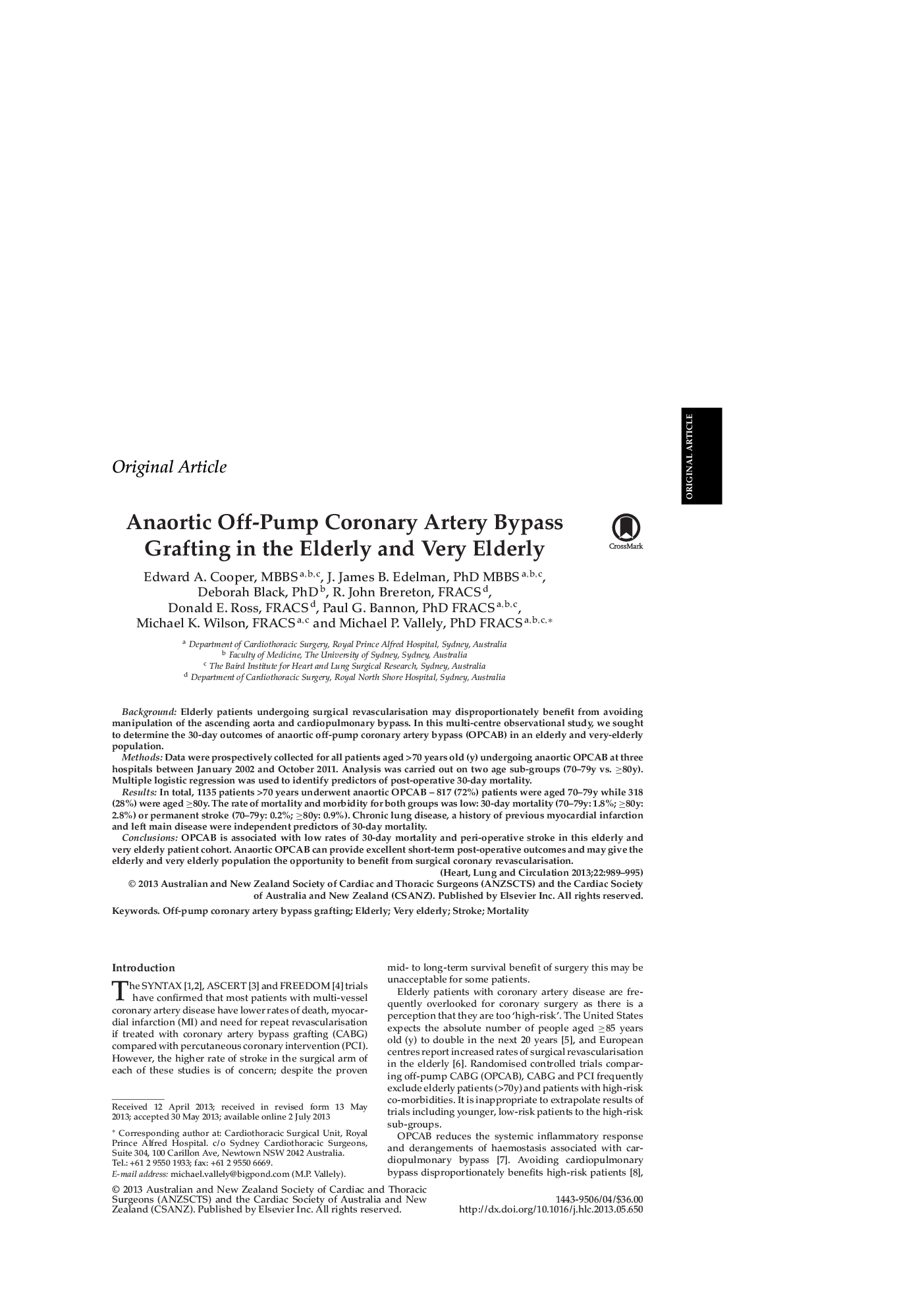| Article ID | Journal | Published Year | Pages | File Type |
|---|---|---|---|---|
| 2917233 | Heart, Lung and Circulation | 2013 | 7 Pages |
BackgroundElderly patients undergoing surgical revascularisation may disproportionately benefit from avoiding manipulation of the ascending aorta and cardiopulmonary bypass. In this multi-centre observational study, we sought to determine the 30-day outcomes of anaortic off-pump coronary artery bypass (OPCAB) in an elderly and very-elderly population.MethodsData were prospectively collected for all patients aged >70 years old (y) undergoing anaortic OPCAB at three hospitals between January 2002 and October 2011. Analysis was carried out on two age sub-groups (70–79y vs. ≥80y). Multiple logistic regression was used to identify predictors of post-operative 30-day mortality.ResultsIn total, 1135 patients >70 years underwent anaortic OPCAB – 817 (72%) patients were aged 70–79y while 318 (28%) were aged ≥80y. The rate of mortality and morbidity for both groups was low: 30-day mortality (70–79y: 1.8%; ≥80y: 2.8%) or permanent stroke (70–79y: 0.2%; ≥80y: 0.9%). Chronic lung disease, a history of previous myocardial infarction and left main disease were independent predictors of 30-day mortality.ConclusionsOPCAB is associated with low rates of 30-day mortality and peri-operative stroke in this elderly and very elderly patient cohort. Anaortic OPCAB can provide excellent short-term post-operative outcomes and may give the elderly and very elderly population the opportunity to benefit from surgical coronary revascularisation.
